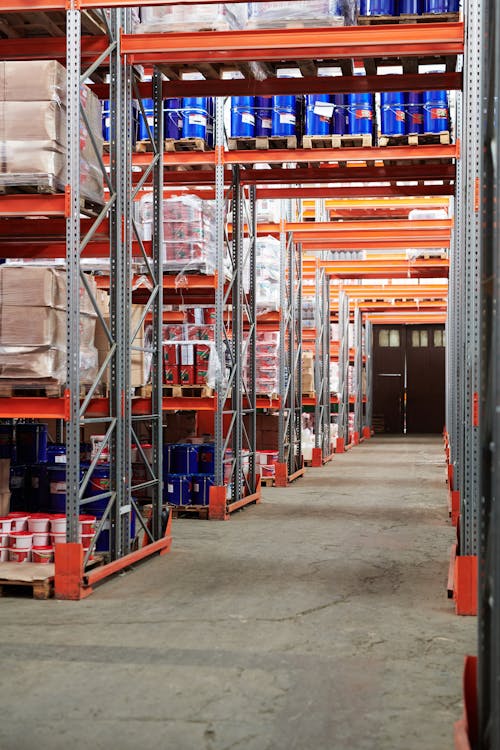eBay vs. Facebook Marketplace: The Definitive Seller's Guide for 2025
The side-hustle economy is no longer a niche—it's a full-blown movement. Whether you're decluttering your home for extra cash or building a full-time reselling empire, choosing the right platform is more critical than ever. For years, two titans have dominated the peer-to-peer selling space: eBay, the established global giant, and Facebook Marketplace, the hyper-local social commerce powerhouse.
But the e-commerce landscape is constantly shifting. With new AI integrations, evolving fee structures, and changing user expectations, the best choice in previous years might not be the best choice for 2025.
This article provides the definitive 2025 comparison of eBay and Facebook Marketplace. We'll break down the fees, audience, shipping, and seller protection to help you decide which platform best suits your products, your goals, and your selling style.

At a Glance: Who Are eBay and Facebook Marketplace For?
Before we dive deep, let's establish the core identity of each platform. Understanding who they're built for is the first step in knowing if they're built for you.
eBay's Core Identity: The Global Auction House & Fixed-Price Superstore
Think of eBay as a massive, digital superstore combined with the world's largest auction house. It’s a structured, business-oriented environment designed for serious commerce.
- Target Audience: Collectors, niche hobbyists, professional resellers, and anyone seeking a global customer base. If you're selling rare sneakers, vintage postcards, or specific electronic parts, your buyer could be anywhere in the world.
- Primary Strength: Unmatched global reach, robust seller protection policies, and a powerful suite of tools designed for serious businesses.
Facebook Marketplace's Core Identity: The Digital Community Yard Sale
Facebook Marketplace is the digital evolution of a neighborhood yard sale or a community bulletin board. It’s casual, social, and built for ultimate convenience.
- Target Audience: Casual sellers, local communities, people selling bulky items (like furniture), and anyone who prioritizes simplicity and wants to avoid selling fees on local sales.
- Primary Strength: Unbeatable simplicity for local sales, a massive built-in local audience, and seamless integration with the social network you already use.
The Critical Comparison: A Head-to-Head Breakdown for 2025
Now, let's put the platforms side-by-side and analyze the factors that matter most to sellers.
The Fee Breakdown: Where Your Profits Go
Fees are often the deciding factor for sellers. A "free" listing doesn't always mean a free sale, so understanding the complete cost is essential.
eBay's Fee Structure in 2025
eBay's fees are more complex but provide access to a more structured and protected service. Expect a multi-layered approach.
- Insertion Fees: You get a generous number of free listings per month (typically 250+). After that, you pay a small fee (around $0.35) per listing, unless you have a Store subscription.
- Final Value Fee: This is the main fee. When your item sells, eBay takes a percentage of the total sale price, including shipping and sales tax. This percentage varies by category but typically ranges from 10% to 15%.
- Payment Processing Fees: These are now conveniently integrated into the single Final Value Fee, simplifying the old system.
- Optional Fees: You can pay extra to promote your listings (Promoted Listings) or subscribe to an eBay Store for more free listings and lower final value fees, which is ideal for high-volume sellers.
Example: You sell a collectible toy for $100, and the buyer pays $10 for shipping. In a category with a 13.25% fee, your Final Value Fee would be 13.25% of the total amount ($110), which is $14.58.
Facebook Marketplace's Fee Structure in 2025
Facebook's model is famously simple, especially for local transactions, which is its main appeal.
- Local Pickup: It is 100% free to list and sell items locally for cash or a third-party payment app (like Venmo or Zelle). This is its killer feature.
- Shipped Items: If you sell an item that requires shipping and use Facebook's checkout system, you'll pay a Selling Fee. For 2025, this fee is 5% per shipment, or a flat fee of $0.40 for shipments of $8.00 or less. This fee includes payment processing and helps fund purchase protection.
- No Other Fees: There are no listing fees, no monthly subscriptions, and no hidden costs for standard listings.
Example: You sell a shirt for $20 and ship it through Facebook's system. The selling fee would be 5% of $20, which is just $1.00.
Audience & Reach: Local vs. Global
Who do you want to sell to? Your neighbor down the street or a dedicated collector across the ocean?
Selling to the World with eBay
eBay’s audience is its superpower. You aren't just selling to your city; you're selling to over 135 million active buyers worldwide.
- Global Reach: This is essential for rare, collectible, or in-demand items that have a specific, geographically dispersed audience.
- eBay International Shipping: This program simplifies international sales. You ship the item to a domestic hub, and eBay handles the international logistics, customs forms, and import charges for you.
- Ideal For: Vintage clothing, trading cards, out-of-production electronics, and specialized parts.
Tapping into Your Community with Facebook Marketplace
Facebook Marketplace leverages its nearly 3 billion users by focusing on the ones closest to you.
- Hyper-Local Targeting: By default, your listings are shown to people in your geographic area, making it perfect for quick, local sales.
- Leveraging Social Groups: You can cross-post your listings to relevant local "Buy, Sell, Trade" or "Yard Sale" groups, dramatically increasing visibility within your community.
- Best For: Items that are impractical or expensive to ship, like furniture, exercise equipment, baby gear, and appliances.
Shipping & Logistics: Getting Your Item to the Buyer
How your item gets from A to B is a core part of the selling experience. This is an area where the two platforms differ significantly.

eBay's Integrated Shipping Solutions
eBay is built for shipping. It offers a comprehensive, professional-grade logistics system designed to protect sellers.
- Flexible Options: You can offer calculated shipping (based on the buyer's location), flat-rate shipping, or free shipping.
- Discounted Labels: Purchase and print discounted shipping labels directly from eBay for USPS, UPS, and FedEx, saving you money on postage.
- Automated Tracking: When you buy a label through eBay, the tracking number is automatically uploaded and sent to the buyer, which is crucial for seller protection.
Facebook Marketplace: Local First, Shipping Second
Shipping on Facebook Marketplace is an option, but the platform's DNA is rooted in local meetups.
- Porch Pickup (PPU): This is the dominant method. Buyers come to you (or a designated public place) to pick up the item and pay. It's fast, simple, and fee-free.
- Offering Shipping: You can choose to offer shipping for smaller items. You can either use a prepaid label provided by Facebook or handle the shipping yourself.
- Challenges: The shipping integration is less robust than eBay's. Tracking and communication are more manual, and there's a higher risk of issues if you don't follow the process carefully.
Ease of Use & The Listing Process
How much time and effort does it take to get your item listed for sale?
Listing on eBay: More Detail, More Power
The eBay listing process is detailed for a reason—it gives buyers confidence and helps your item get found in a sea of millions.
- The Detailed Form: You'll fill out item specifics, condition, a detailed description, and upload multiple photos. This can feel slow at first but leads to better sales.
- Learning Curve: New sellers may find the interface and its options (auction vs. fixed price, best offers, etc.) a bit overwhelming initially.
- 2025 AI-Powered Tools: eBay is heavily investing in AI to make this easier. In 2025, expect more advanced AI-powered description generators, background removal for photos, and item-specific suggestions, significantly speeding up the process.
Listing on Facebook Marketplace: Fast and Simple
Facebook's process is designed to be as frictionless as possible, especially on a mobile phone.
- Streamlined Process: You can list an item in under a minute. Just snap a few photos with your phone, add a title, price, and brief description.
- Minimal Information Required: Only a few fields are mandatory, making it incredibly fast to post.
- The Pro and Con of Simplicity: The speed is great for casual sellers, but the lack of detailed fields can make it harder for buyers to find specific items and compare them effectively.
Seller & Buyer Protection: Who Has Your Back?
When a sale goes wrong, a good protection policy is priceless. This is one of the most significant differences between the two platforms.
eBay's Money Back Guarantee & Seller Protections
eBay has a formal, structured, and legally-binding system for disputes.
- Robust Policies: The eBay Money Back Guarantee protects buyers if an item isn't received or is "not as described." This builds essential buyer trust.
- Seller Protections: As a seller, if you follow the rules (ship on time with tracking, describe items accurately), eBay offers strong protections against fraudulent buyers and false claims.
- Formal Dispute Resolution: A dedicated Resolution Center mediates cases between buyers and sellers. It’s a structured process that provides clear outcomes.
Facebook's Purchase Protection & Community Guidelines
Facebook's protection is less comprehensive and varies wildly between local and shipped sales.
- Protection for Shipped Items: Purchase Protection applies only to items that are shipped and paid for through the Facebook checkout system. It covers issues like non-delivery or items not as described.
- The "Wild West" of Local Sales: For local cash transactions, there is no official purchase protection. Once the cash and item are exchanged, the deal is considered final. Your only recourse is the buyer's goodwill or small claims court.
- Trust Signals: Trust is built on user profiles, ratings, and common sense. Always check a buyer's profile and ratings, and meet in a safe, public place.
The 2025 Verdict: Which Platform Wins for You?
There is no single winner. The best platform is the one that aligns with what you're selling and what you want to achieve.
Choose eBay in 2025 If...
- ✅ You sell collectibles, antiques, brand-name fashion, or niche electronic items.
- ✅ You want to build a professional reselling business with a national or global customer base.
- ✅ Your items are small, easy to ship, and have a high value-to-weight ratio.
- ✅ You value robust, formal seller protection and are willing to pay fees for that security.
- ✅ You are comfortable with a more structured, business-like process and a moderate learning curve.
Choose Facebook Marketplace in 2025 If...
- ✅ You are a casual seller decluttering your home.
- ✅ You are selling large, bulky, or heavy items like furniture, appliances, or exercise equipment.
- ✅ You want to avoid selling fees and strongly prefer fast, local cash transactions.
- ✅ You prioritize speed and simplicity in the listing process above all else.
- ✅ You are comfortable with direct, informal communication and negotiation with buyers via Messenger.
Quick-Reference Summary Table
| Feature | eBay | Facebook Marketplace |
|---|---|---|
| Primary Audience | Global, Niche Buyers, Resellers | Local, Casual Sellers, Community |
| Fees (Local) | N/A | Free |
| Fees (Shipped) | ~13% Final Value Fee | 5% Selling Fee |
| Best For | Collectibles, Electronics, Fashion | Furniture, Appliances, Local Goods |
| Shipping | Integrated & Powerful | Local-first, basic shipping |
| Seller Protection | Robust & Formal | Limited (stronger for shipped items) |
| Ease of Use | Moderate Learning Curve | Extremely Easy |
Final Thoughts: The Hybrid Strategy and the Future
The smartest sellers in 2025 don't choose one platform; they use the right tool for the right job. You don't have to be exclusively an "eBay seller" or a "Facebook Marketplace seller."
Embrace the Hybrid Strategy:
- Have a large sofa to sell? List it for free on Facebook Marketplace for a local pickup.
- Found a rare, first-edition book? List it on eBay to reach collectors across the globe.

The future of peer-to-peer selling, or "re-commerce," is bright. Look for continued AI integration to make listing easier, the rise of video listings to better showcase products, and a growing consumer emphasis on sustainability. The best way to find out which platform works for you is to start. Pick one item you no longer need, list it, and see which platform's workflow feels right for you. Your selling journey starts with that first sale.
Frequently Asked Questions (FAQ)
Can I sell the same item on both eBay and Facebook Marketplace at the same time?
Yes, this is called cross-posting. However, you must be extremely diligent. If the item sells on one platform, you must immediately delete the listing from the other to avoid selling it twice, which can lead to negative feedback and account penalties on eBay.
How do I handle taxes for sales on these platforms in 2025?
If your sales exceed a certain threshold set by the IRS, the platforms are required to issue you a Form 1099-K. You must report this income on your tax return. It's crucial to track your expenses (cost of goods, shipping supplies, fees) to deduct against this income. Tax laws are complex and subject to change, so always consult with a tax professional for advice specific to your situation.
What are the safest practices for local meetups from Facebook Marketplace?
Always prioritize safety. Meet in a well-lit, public place, preferably one with security cameras, like the lobby of a police station or a busy supermarket parking lot. Never invite strangers to your home. Tell a friend where you are going and who you are meeting. For high-value items, only accept cash to avoid payment app scams and chargebacks.
Is it worth paying for an eBay Store subscription in 2025?
If you are a casual seller with fewer than 250 listings a month, an eBay Store is likely not worth the cost. However, if you are a serious reseller listing hundreds of items, a Store subscription can significantly lower your Final Value Fees and Insertion Fees, saving you substantial money in the long run.
Is shipping on Facebook Marketplace as reliable as eBay?
eBay's shipping system is more mature and integrated. Its automated tracking and label generation provide better protection for sellers against "item not received" claims. While you can ship safely on Facebook Marketplace, it requires more manual effort to ensure you have proof of shipping and delivery. For valuable or fragile items, eBay's system offers more peace of mind and security.
